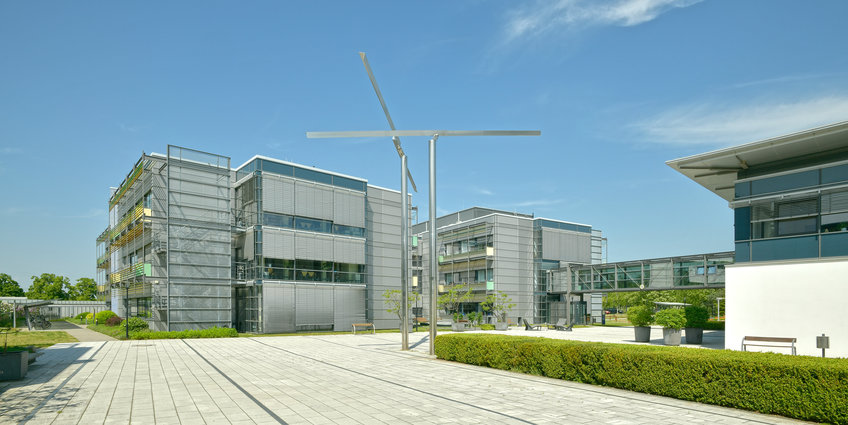
Portrait
The Max Planck Institute of Molecular Plant Physiology was founded in 1994, as one of 18 institutes on the territory of the former GDR. The founding director was Prof. Dr. Dr. h.c. Lothar Willmitzer, who was the director of one of the three departments which have been established since then. From originally only 16 employees the institute grew into a large institute, which now employs about 360 people from all over the world, who put their combined efforts into elucidating the secrets of plants.
Since 1999, the Max Planck Campus at Potsdam Science Park is home to the Max Planck Institute of Molecular Plant Physiology, the Max Planck Institute of Colloids and Interfaces and the Max Planck Institute for Gravitational Physics. The three institutes share a central building with a lecture hall, seminar rooms, administration offices and a cafeteria. Apart from that, they are completely independent from each other.
Science and Research
The central scientific mission of the institute is to understand the evolution and function of molecular processes that control the development, physiology and interaction of plants with their environment. To achieve this goal the institute investigates biological interactions of plants at various scales with a particular focus on three scales: interactions within plant cells, interactions of plant cells with each other, and interactions between organisms. These include, for example:
- the interactions between endosymbiotic organelles and the nucleus (studied in the Bock department)
- the interactions between embryo and the endosperm during seed development (investigated in the Köhler department)
- the interactions between plant roots and symbiotic fungi (studied in the Gutjahr department).
Another research topic are the interactions between plant cells and viruses.
Departments
In the department "Organelle Biology, Biotechnology and Molecular Ecophysiology", Prof. Ralph Bock and his research team deal with the physiology and genetics of cell organelles, such as plastids and mitochondria, as well as the molecular mechanisms of the evolution of plant genomes. The spectrum of methods includes techniques from molecular biology, genetics, physiology, biochemistry, biophysics and bioinformatics.
The department "Plant Reproductive Biology and Epigenetics" investigates seed formation of flowering plants and how epigenetic processes are involved in plant reproduction. This primarily concerns the control of the initiation of seed formation and the exchange of signals within the seed, as well as the elucidation of the mechanisms of seed-based hybridization barriers that prevent the crossing of different species and thus establish species boundaries. Methods of microscopy, genetics, genomics, epigenomics and bioinformatics are mainly used for this purpose.
In the department “Root Biology and Symbiosis” led by Prof. Dr. Caroline Gutjahr, central research questions are whether and how the establishment of the symbiosis between plants and mycorrhiza fungi is influenced by environmental factors and which molecules play a crucial role in this process. Professor Gutjahr not only studies the molecular processes in plants, but also the fungi, which have hardly been studied in detail. Furthermore, the department is looking into whether the molecular knowledge can be used to breed mycorrhiza-optimized crops that could contribute to sustainability in agriculture.
More information about the research interests of the various groups can be found in the Research section of this website.